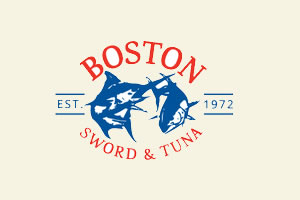

Migration
Migrations are part of the natural order of things. In nature, many species migrate to survive. Geese fly south, elephants cross the African dessert, and people from New Jersey and New York descend upon Florida after the first freeze.
It’s a natural process, and few species migrate as much as Mahi Mahi. Migrations are typically initiated by weather change, and Mahi migrations are no exception. Last year the Mahi migration was severely affected, which caused low landings and exorbitant prices. If you are a chef I am sure you remember paying much more for this species last year than any other time in your career. Winter is peak season for Mahi in Central and South America, and in a typical year most of the fish is harvested right off the coasts of Ecuador, Panama, and Costa Rica. Last year, however, due to the warmer water currents, the fish moved farther south. This made them harder to track and harder to get to harbor. Much of the stock was landed in Peru, causing logistical nightmares getting the fish to market and higher prices. It is too early to predict this winter season, but there is good news for the next couple of weeks. Fish are starting to trickle in and supply is beginning to regress to the mean, meaning more fish this year. We should see much relief for this species compared to last year if the current trend continues.
Migrations also play big roles in seasonality and there are two notable seasons coming to a close. As far as supply goes, Wild Salmon are day-to-day. The season seems to be ending with only a few gill net fish coming out of the Quinault River in Washington. There will be some winter Troll King Salmon available, but those fish are always few in number and high in cost. The West Coast Halibut season ends on November 7th, but supply looks to be limited even before then due to bad weather and many quotas already filled. If you are looking to keep salmon and halibut on the menu, you can utilize farmed salmon from reputable farms such as Skuna Bay in Vancouver and keep in mind that you can source sustainable fresh day boat East Coast Canadian Halibut throughout the winter, weather permitting.
Gourmet Grab
Few seasons are as fleeting as the short window provided for the very sought after and extremely delicious cheese, Rush Creek Reserve. Every year, Uplands Cheese, located near Dodgeville, WI, produces a young, soft ripened cheese that has everyone clamoring to get their names on the waiting list. The production is always limited and there is always someone left wanting more. Rush Creek Reserve has a buttery, rich texture that is associated with the cow’s diet switching from grass to hay during the fall. It is bound in Spruce bark, which gives it a deep, woodsy flavor and a savory essence, reminiscent of salumi. Due to the small production, this cheese remains seasonal and limited, so please inquire about availability.














